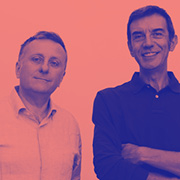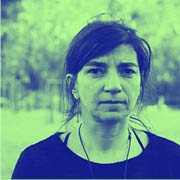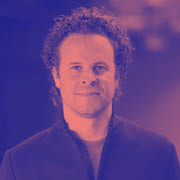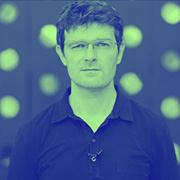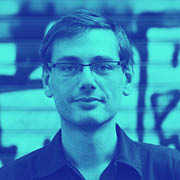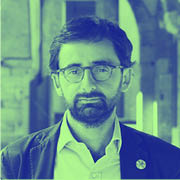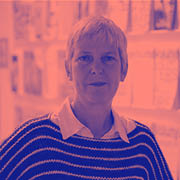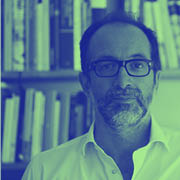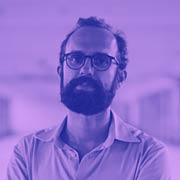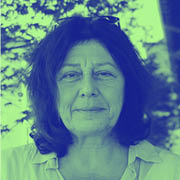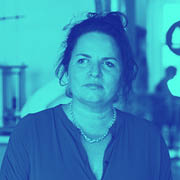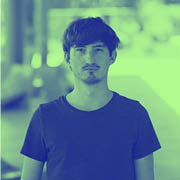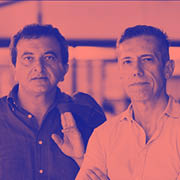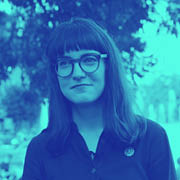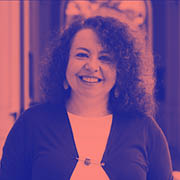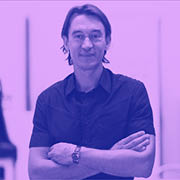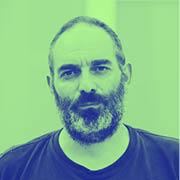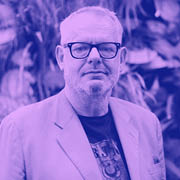SUSTAINABLE DEVELOPER
WIGGER VERSCHOOR
Wigger Verschoor is a citymaker at Urban Jungle as well as the co-founder and COO at ThuisBaas which, supported by Urgenda, provides an innovative ‘one-stop-shop’ for retrofitting existing houses to achieve energy neutrality.
TERMS
eco-efficiency
brand urbanism
energy neutral
crowd pleading
NEW ECOLOGIES
ECO-EFFICIENCY
Eco-efficiency is a term that could possibly be used to replace sustainability. Sustainability of course, is term that says both everything and nothing at the same time. Eco-efficiency on the other hand, is an attempt to combine two worlds together – the environmental and the economic. I believe this interweaving is particularly necessary because this polarization, this dichotomy, between the two sides of the spectrum is something that still prevails, and remains an obstacle in embracing a fundamentally new way of understanding our relationship to our environment, urban or otherwise. One example of the use of eco-efficiency is Ray Anderson, the former CEO of Interface, a large carpet tile company. Back in the 90’s, he started to use that term to look at all the different aspects of his company, and try to make the processes more eco-efficient. He called himself a radical capitalist. Basically he was saying; ‘Well, I can be an activist, but I am also going to continue to consider the economic value’. The two are not mutually exclusive. In this sense, a move towards more sustainable choices is also the pragmatic view and not far removed from the logic of the Fordist conveyor belt a hundred years ago – it is just the next step in efficiency. Eco-efficiency will link people together who are now still somewhat in opposition with one another.
URBAN ASSETS
BRAND URBANISM
The first term I would like to suggest is brand urbanism. In the Netherlands, urbanism has generally been government led, but over the last few decades we have seen a lot of other parties begin to have an influence in setting the agenda. The one party missing however, at least within the Netherlands, is the private enterprise. We have seen many international examples of public-private partnerships seeking to add value to urban spaces and experiences. Transport for London (TfL) for example, is the responsible authority for public transport in London, and five years ago wished to develop a cycling highway, to provide an alternative for motorized transport. They realised that such an endeavor was too costly to undertake independently and instead looked for partners through an open tender process. They found a partner in Barclays who shared their vision and also incorporated a share bicycle scheme, like those seen in Barcelona and Paris. This collaboration lasted five years and has been continued by Santander UK. The return on investment is that the cycling highways have been painted in the color blue - the color of Barclays, no logos, but a subtle marketing tool. Where brand urbanism deviates from more conventional ways that brands appear in the public arena, is through their focus on adding value to public urban environments, rather than interposing itself over them, in the case of billboards and conventional marketing. In Holland I think it is necessary to find new parties to engage in such arrangements and I think that brand urbanism provides a meaningful opportunity to create new relationships and add value to the city.
DIGITAL TOOLKIT
CROWD PLEADING
Crowd pleading derives from the notion of ‘crowdfunding’. Of course the word crowd, in crowd sourcing or crowd funding, has been applied in urban discourse for some time. Our organization Urgenda filed a lawsuit against the State some years ago in regards to the responsibilities of climate change. In that and other situations, we are always interested in finding people and corporation who wish to actively plead with us, to formally state their interest in this whole process. I think that institutions like Avas, known for their petition campaigns which reach millions of people are constantly developing ways in which people can act jointly in order to support certain initiatives. These processes realise that it is hard to physically get people together and that we are doing more things from our seats, behind our computers and online. I think that crowd pleading retains a more active involvement. Through crowd funding we give money as a sign of support, and you have a certain return on that. Crowd pleading is another way through actively stating your position and backing certain initiatives. It entails more than a Facebook ‘like’ because you are actually visible as a backer. Crowd pleading is what we are doing with several thousands of backers who actively back up the climate case the we are leading against our national state.
NEW COLLECTIVES
ENERGY NEUTRAL
Energy neutral is a term which is close to my heart, because of a social startup I am working on called ‘Thuisbaas’, or ‘home boss’ in English. We are looking at making existing households energy neutral. My dream would be when people realise that they have a personal CO2 ‘budget’, and it’s actually their responsibility to go neutral on that budget. To try and obtain all the energy necessary for your home off your own land, both electricity and heat, together. However, I hope that being energy neutral will become more of an adjective, that more widely describes of state of being, ie; ‘are you energy neutral?
INTERVIEWED BY
ANIA MOLENDA
Wigger discusses the Climate Case and the precedent it set for taking on governments and the changing role of the cityplanner.
link
THE GREEN HEART OF HOLLAND
‘groenehart.nl’
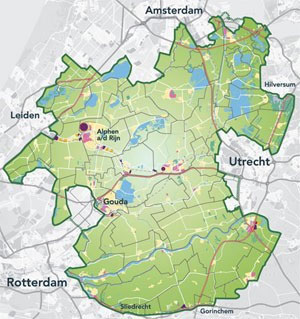

AM:
Is there something specific that characterises contemporary vocabulary? Such as positive or negative developments? And is there something we can do about it?
WV:
This story of Het Groene Hart – ‘ the green heart’ – comes to mind. Which is a concept that luckily still exists in Holland to help safeguard the green spaces between Amsterdam, Den Haag, Rotterdam, and Utrecht, as a sort of green hardware. So, the cities become distinct regions within this green heart - with boundaries and thresholds they can’t extend beyond. This has been a very powerful concept that has survived for decades and entered the psyche of the people. My personal belief is that we need more of such socially binding concepts that are so effective in the way in which they condition our actions.
The problem I see with our present vocabulary is its fluidity. Terms come into existence and disappear rapidly, spurred on by ubiquitous internet access and social media. In general, I hope that there is a realisation that it is important for certain terms to remain with us for a longer time- to become ingrained in society – so that it can be properly understood. This is definitely a concern of mine across both the fields of urban planning and sustainable development. Of course, the word sustainability as I’ve mentioned is troublesome however it is no longer something that we can put aside because a new term arose. We have to completely embrace what it represents in the same way we have embraced the word economy. Currently, because sustainability is viewed as somewhat intangible and paradoxical in its meaning it is not embraced in the same manner as our equally intangible economy.
The problem I see with our present vocabulary is its fluidity. Terms come into existence and disappear rapidly, spurred on by ubiquitous internet access and social media.
AM:
Do you have a personal anecdote where you felt misunderstood because of the use of certain terms, which had a different meaning in a different context?
WV:
My experience refers to a Dutch phrase: ‘maatschappelijk kosten baten analyse’, which translates roughly to ‘societal cost-benefit analysis’ and was particularly important in a project we conducted in relation to a long-term housing programme for the Harlemmemeer polder – approximately 10,000 new homes over thirty years. The term expands upon the traditional concept of the cost benefit analysis, looking at indirect costs and benefits that would occur in the future in order to understand if it is smart to invest in a certain path. I really saw the potential of the term which is derived from a more economic, liberal perspective. It allowed us at Urgenda to include certain costs and benefits that weren’t really part of the current calculations but were nonetheless present and going to occur in the future. With sustainability, it is all about pre-investing and harvesting later. While we were trying to juggle with these terms we were also dealing with private owners and big pension funds, who owned the land and wished to make a good profit for their clients from the development. In discussing societal cost-benefit analysis they automatically perceived it as a burden - having to pitch in extra money to make it more valuable to society - and directly opposed what they thought it represented. Whereas, we saw an opportunity to join forces and to align the pension fund’s 30,40 or 50 year outlooks with our own long term plans but this shared interest was misunderstood completely. Companies and institutions are still negative towards that term and whilst there are some companies that actively embrace the development of societal business case analysis, it hasn’t been taken up to the degree I was hoping that it would have.
project
HAARLEMMERMEER 2030
document courtesy of Urgenda
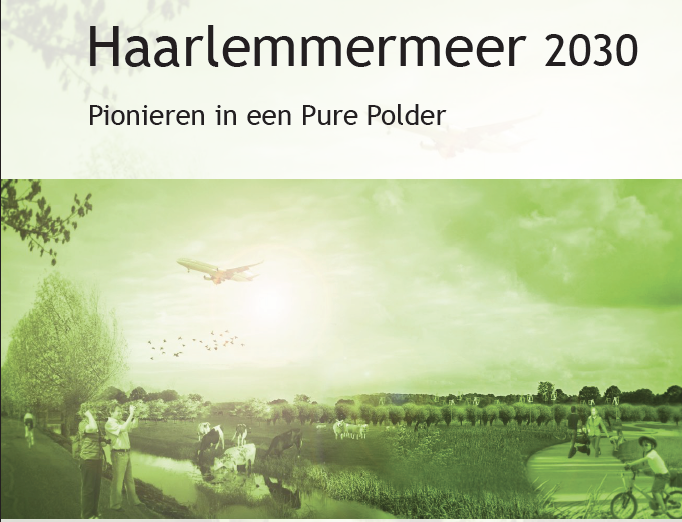

AM:
We are now seeing rapid fluctuations in the meaning of terms. For example, green generated a lot of hype before ‘greenwashing’ devalued its relevance as a term. What can we do to avoid this devaluation and maintain relevance? You mentioned earlier the ability to appeal to different ends of the spectrum. Can you elaborate on what you mean by this?
WV:
The concepts of sustainability or ‘green’ cannot unfortunately be liberated from their current reputations. These are words which are boldly trying to represent a larger context which then suffer in being easily misconstrued. Efficiency is connected to what I see as the ‘blue’ side of the spectrum. I use four colors to describe the different target groups. Green is obvious. Blue represents the economic perspective of the sustainability world. Yellow represents the collective, collaborative perspective and red represents innovation. Understanding these four groupings, I work in a purely functional manner, to achieve a certain goal - the enormous reduction of our CO2 emission. In that regard I do not care which color, which road, proves most productive. I need to use the green, I use the green. If I find that people respond to ‘yellow’ collaborative approaches - I will use the yellow one. But there are shortcomings to this approach - we don’t have term that encompasses all of these colors/paths and generally people have a little bit of each color in them. What we actually need is a term which appeals to everybody and represents the wide spectrum of their collective interests. This term of course doesn’t exist yet.
website
CLIMATE CASE
urgenda.nl
AM:
I would like to ask you a little bit about the idea related to the yellow side of the spectrum and your term crowd pleading. Government’s are generally not seen as proactive in their responsibilities and it is often the case that we, as citizens and have to take the initiative. Are there other things you can imagine that we can do as citizens to make sure that these common goals are met?
WV:
A revolution has never arisen from a government and we shouldn’t expect it to. What we tried to achieve with the climate case was to provoke a legal revolution. We already saw that there are a lot of people in the Netherlands who are acting out of their own individual context, as an individual family or community. They are chosing to act, vote, decide, consume, and invest in a more sustainable fashion. This is very important and I think we are already doing a lot as citizens of this country. Can we do more? I think the Climate Case definitely proved that there is a legal route that we can follow. At this point, we are trying to help other initiatives worldwide file lawsuits in their countries as well. Hopefully it will have a certain effect on speeding up the pace in which governments are going to adapt which is important as governments are inherently reactive. So what can we do? Vote differently for a start. If you really believe as a liberal person, that sustainability should be more of a concern of the government, then send a message that governments should actively change their laws and regulations. Of course this is easier said then done, so what we are trying to do right now is to approach members of each and every party that we see as open to the sustainable agenda and see if they can foster support within their party. This is because the person responsible for sustainability in the Groenlinks party has greater sway than their counterpart in the liberal party. Providing support to these people is important because if they still believe that certain demands will not be accepted by their followers, they are not going to do it. That is why we chose the legal route. Having an independent judge saying; ‘ You have to do this’ creates a reassuring certainty for a government to say ‘this is clear’. Of course, there is a high appeal underway, so we will have to see how this develops. For the moment however, they have to accept the verdict and act accordingly.
image
CLIMATE CASE
courtesy of Urgenda / Chantal Bekker
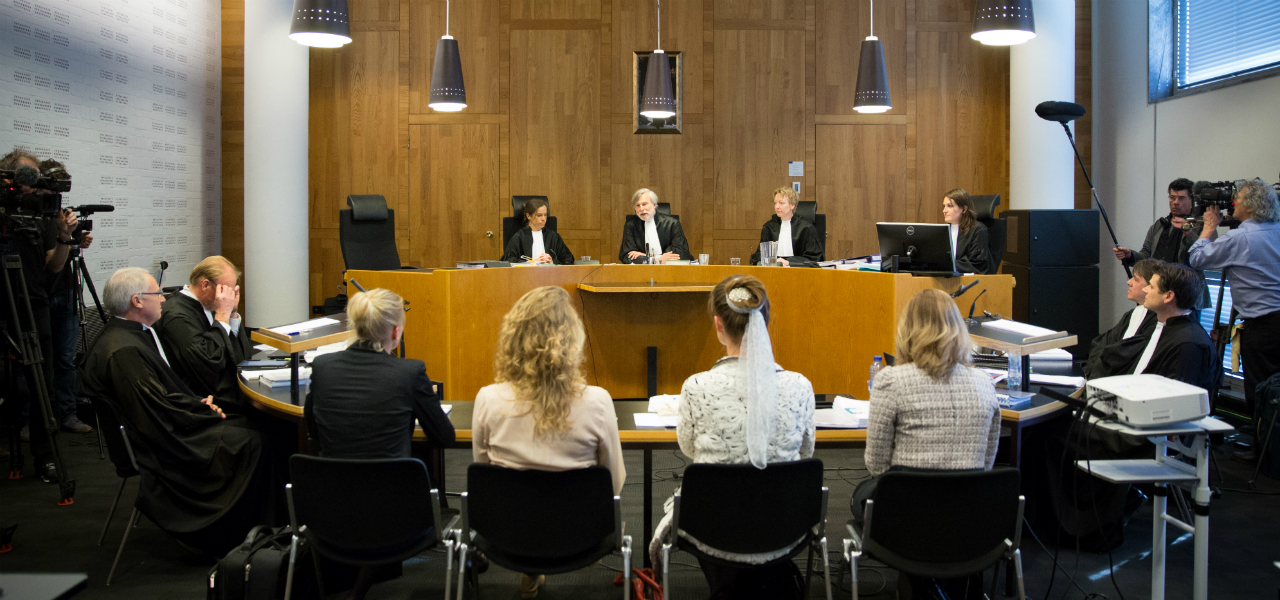

So what can we do? Vote differently for a start.
AM:
It seems that the role of NGO’s, corporations and citizens becomes more important in shaping the public domain than that of the traditionally defined urban experts. What is the future role of the urban planner in the city, is there still place for this profession or do we have to rethink its definition?
WV:
This discussion has been going on for a while. This word ‘planning’ arose from a completely different era and planning, in its traditional sense, is occurring less frequently. Holland however, perhaps more than any other country, represents what might be described as a rigorously ‘planned’ country, having had its grand housing schemes largely instigated by a top down approach. However we now realise that we can’t simply keep on building on virgin soil. We have a challenge to build within our cities and adopt a more acupunctural approach to future demands. Consequently, ‘planning’ is becoming more of an incremental, interdisciplinary profession.
I prefer the term urban developer, even though it has negative connotations to the role of the real estate developer. Planning is inherently linked to developing for the future but there are a lot more parties now involved in any decision making process and the term ‘planning’ needs to change to represent that. The alternatives are already emerging at university. People are no longer urban planners but citymakers. The term, ‘stadsmaker’ has already been in use in Holland and the neutrality of the word as opposed to the power relationships implicit in the title ‘planner’ suggest a new position within a wider web where urban developers need to reach out and encourage interdisciplinary action to solve urban problems.
